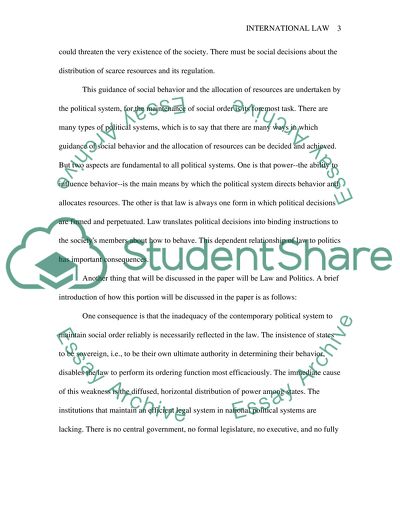Cite this document
(“International Law Dissertation Example | Topics and Well Written Essays - 1250 words”, n.d.)
Retrieved from https://studentshare.org/law/1535005-international-law
Retrieved from https://studentshare.org/law/1535005-international-law
(International Law Dissertation Example | Topics and Well Written Essays - 1250 Words)
https://studentshare.org/law/1535005-international-law.
https://studentshare.org/law/1535005-international-law.
“International Law Dissertation Example | Topics and Well Written Essays - 1250 Words”, n.d. https://studentshare.org/law/1535005-international-law.


